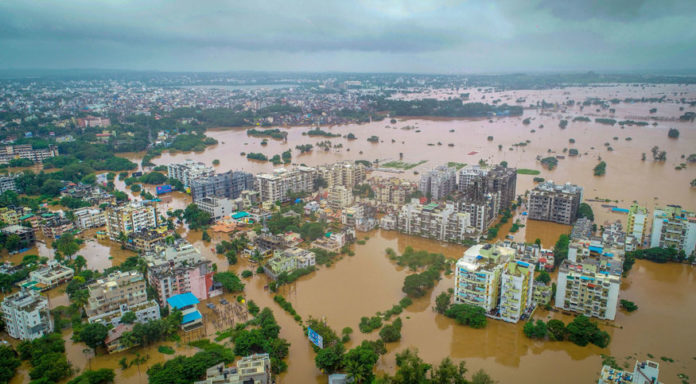Mumbai May Vanish by 2050, Blame Rising Sea Levels: Study
Mumbai is in the news every monsoon when India’s financial capital sinks up to its nose. The city’s resilience and the capability of bouncing back have been lauded. But this may not last long.
A new study has shown that vast swaths of land in Mumbai would go underwater due to rising seas by 2050. Mumbai is not just the only city that would be swallowed by rising seas which could affect three times more people by 2050 than previously thought.
The new projections suggest that much of Mumbai, India’s financial power horse and one of the largest cities in the world, is at risk of being wiped out. Built on what was once a series of islands, the city’s historic downtown core is particularly vulnerable, according to the research.
Downtown Mumbai is the hub of India’s financial power. And the area is thickly populated too.
The research was produced by Climate Central, a science organisation based in New Jersey, and published in the journal Nature Communications. The projections don’t account for future population growth or land lost to coastal erosion.
Rising seas are the new threat that is poised to erase some of the world’s great coastal cities.
The authors of a paper published Tuesday developed a more accurate way of calculating land elevation based on satellite readings, a standard way of estimating the effects of sea-level rise over large areas. The team found that the previous numbers were far too optimistic. The new research shows that some 150 million people are now living on land that will be below the high-tide line by mid-century.
Standard elevation measurements using satellites struggle to differentiate the true ground level from the tops of trees or buildings, said Scott A. Kulp, a researcher at Climate Central and one of the paper’s authors. So he and Benjamin Strauss, Climate Central’s chief executive, used artificial intelligence to determine the error rate and correct for it.
The study shows that Southern Vietnam could all but disappear. More than 20 million people in Vietnam, almost one-quarter of the population, live on land that will be inundated.
Much of Ho Chi Minh City, the nation’s economic centre, would disappear with it,
In Thailand, more than 10 per cent of citizens now live on land that is likely to be inundated by 2050, compared with just 1 per cent according to the earlier technique. The political and commercial capital, Bangkok, is particularly imperilled.
In Shanghai, one of Asia’s most important economic engines, water threatens to consume the heart of the city and many other cities around it.
The disappearance of cultural heritage could bring its own kind of devastation. Alexandria, Egypt, founded by Alexander the Great around 330 B.C., could be lost to rising waters.
In other places, the migration caused by rising seas could trigger or exacerbate regional conflicts.
Basra, the second-largest city in Iraq, could be mostly underwater by 2050. If that happens, the effects could be felt well beyond Iraq’s borders, according to John Castellaw, a retired Marine Corps lieutenant general who was chief of staff for United States Central Command during the Iraq War.
Further loss of land to rising waters there “threatens to drive further social and political instability in the region, which could reignite armed conflict and increase the likelihood of terrorism,” said General Castellaw, who is now on the advisory board of the Center for Climate and Security, a research and advocacy group in Washington.
“So this is far more than an environmental problem. It’s a humanitarian, security and possibly military problem too,” he said.
But then, a lot issues are dependent on the environment.
Said Dina Ionesco of the International Organization for Migration, an intergovernmental group that coordinates action on migrants and development: “Overall, the research shows that countries should start preparing now for more citizens to relocate internally. We’ve been trying to ring the alarm bells. We know that it’s coming. There is a little modern precedent for this scale of population movement”.




















































